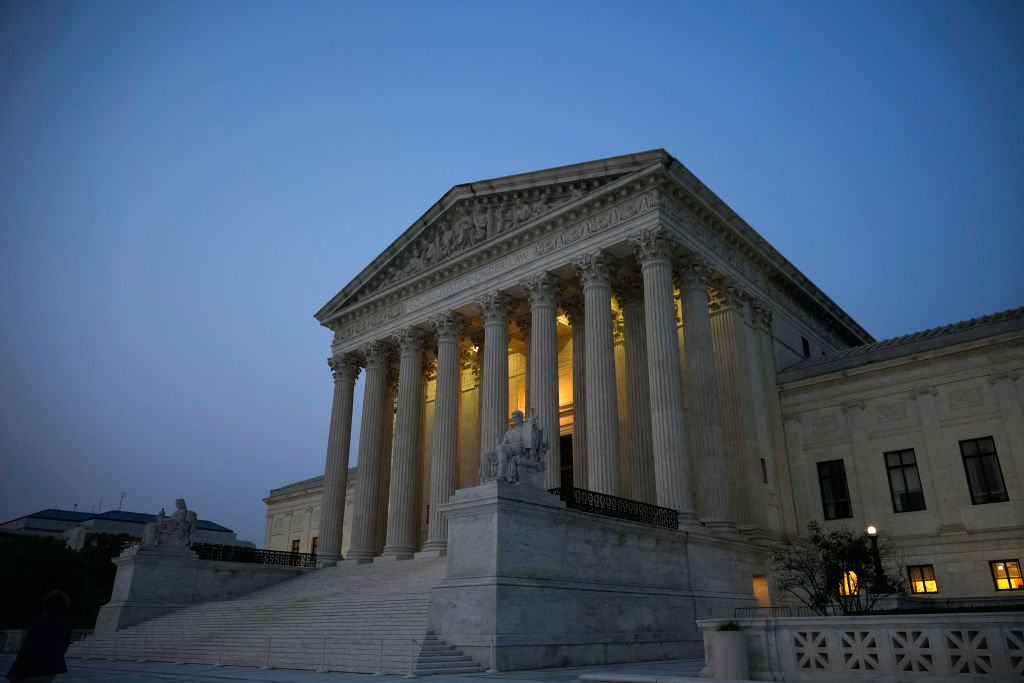Supreme Court Questions Trump’s Tariff Powers in Major Test of Executive Authority

A majority of Supreme Court justices appeared skeptical Wednesday about President Donald Trump’s ability to unilaterally impose sweeping tariffs, threatening a cornerstone of his economic agenda.
According to The Associated Press, three conservative justices raised concerns over whether an emergency law gives Trump near-limitless power to set and change import duties, with potential trillions of dollars at stake for the global economy.
The court’s three liberal justices also seemed doubtful, suggesting at least two conservative votes could limit, though not entirely block, Trump’s tariff authority.
The case marks the first major piece of Trump’s agenda to reach the nation’s highest court, which he shaped by appointing three justices during his first term.
While the conservative majority has largely avoided checking his short-term executive actions, a detailed ruling on the tariffs could shift that precedent, though it may take weeks or months.
The Trump administration argues that a 1977 emergency law allowing the president to regulate importation also authorizes imposing tariffs, a claim unprecedented in U.S. history. The Constitution, challengers note, gives Congress the power to levy tariffs.
Justice Neil Gorsuch questioned the proposal, warning it could “shift too much congressional power to the president on an issue that helped spark the American Revolution.”
He called it “a one-way ratchet toward the gradual but continual accretion of power in the executive branch and away from the people’s elected representatives.”
Chief Justice John Roberts pressed on whether the law allowed tariffs on “any product, from any country, in any amount, for any length of time.”
Justice Amy Coney Barrett similarly asked, “Spain? France? I mean, I could see it with some countries but explain to me why as many countries needed to be subject to the reciprocal tariff policy.”
Should the Supreme Court allow President Trump to impose tariffs using emergency powers?
Support: 0% (0 Votes)
Oppose: 0% (0 Votes)
Solicitor General D. John Sauer defended the tariffs as a tool to address lopsided trade deals, saying their revenue-raising effect is “only incidental.”
Within hours, Trump touted the tariffs as a means to cut the deficit, claiming, “My tariffs are bringing in hundreds of billions of dollars.” He called the case “one of the most important in the country’s history” and warned a ruling against him would be “catastrophic for the economy.”
The legal arguments focused on two sets of tariffs: one imposed in February on Canada, China, and Mexico following a national emergency declaration over drug trafficking, and another “reciprocal” set announced in April targeting most countries.
Multiple lawsuits challenge the tariffs, including cases from a dozen largely Democratic states and small businesses, arguing that no president before has used the 1977 International Emergency Economic Powers Act to impose tariffs.
Lower courts largely found the tariffs illegal under the law, though some appeals judges sided with the administration, granting broad presidential authority.
Much of Wednesday’s Supreme Court debate centered on the major questions doctrine, which has struck down significant policies in the past, including Biden’s student loan forgiveness plan.
Challengers warned Trump’s tariffs could raise $3 trillion over the next decade, largely impacting Americans, and argued Congress would permanently cede control if the court sided with the president.
Justices like Brett Kavanaugh seemed open to the administration’s argument, noting, “So you’re forcing the president to respond to an emergency … and you’re taking away the president’s suite of tools. That just seems a bit unusual.”
Roberts also expressed caution about limiting presidential foreign affairs power too far. Attorney Neal Katyal, representing small business challengers, countered that the tariffs function as a domestic tax, reinforcing the need for congressional oversight.